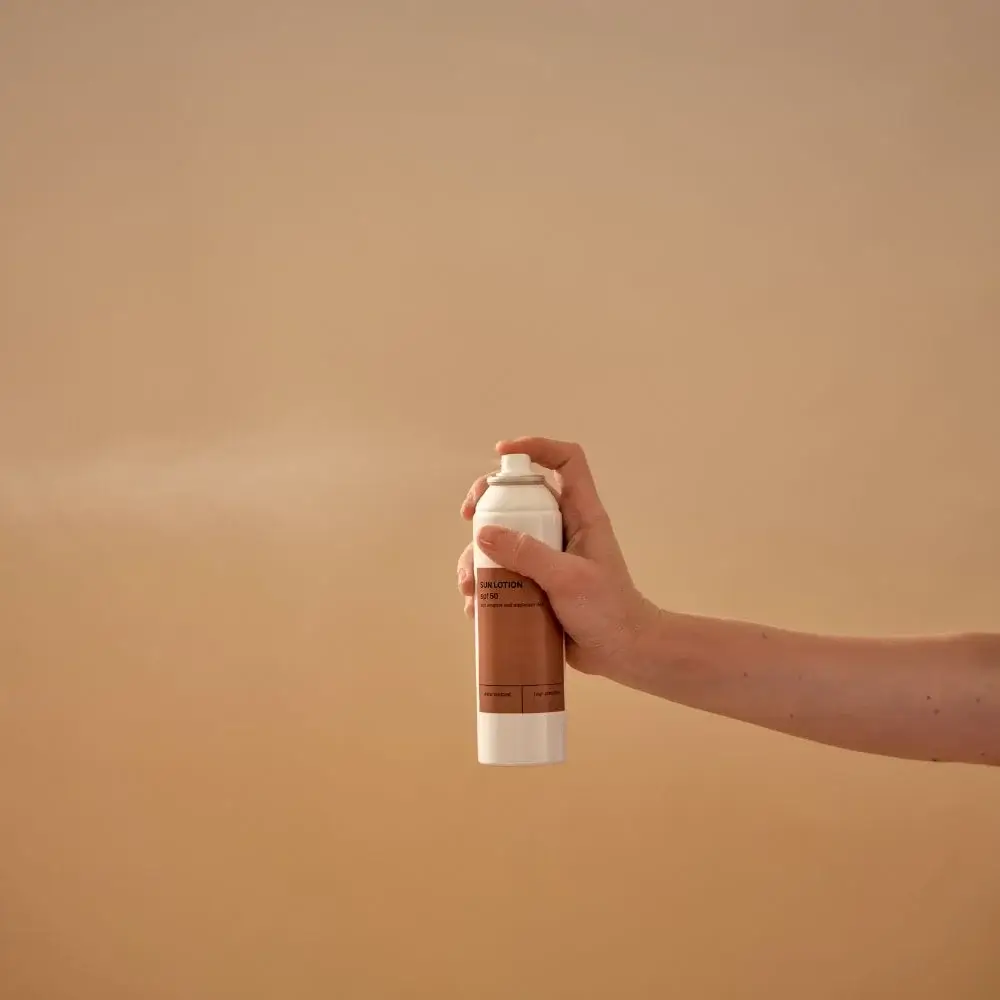One of the easiest ways to make your beauty routine more sustainable and eco-friendly is by switching to natural and vegan beauty products. One product that most people may not realize can be easily made at home is deodorant. However, most of the commercial deodorants available in the market contain harmful chemicals like aluminum, parabens, and phthalates that can be hazardous to our health. If you're one of those who are looking for an all-natural, vegan, and eco-friendly option, then this blog is for you. Most conventional deodorants are filled with chemicals and synthetic fragrances that can harm your health and the environment. This post will provide a recipe and step-by-step instructions on making vegan deodorant at home using natural ingredients.
Ingredients
To start, gather the following ingredients:
- 1/4 cup of baking soda
- 1/4 cup of arrowroot powder
- 4 tablespoons of coconut oil
- 10-15 drops of essential oils (optional)
Method
- In a mixing bowl, mix together the baking soda and arrowroot powder.
- Melt the coconut oil in a microwave or double boiler and add it to the dry ingredients. Mix well.
- Add the essential oils, if using, and mix until well combined.
- Pour the mixture into an empty deodorant container or a small glass jar with a lid.
- Allow it to cool and solidify before using.
Mix the Ingredients:
Combine ½ cup of baking soda, ½ cup cornstarch/arrowroot flour, and 5 tablespoons of coconut oil in a mixing bowl. Stir the ingredients until they are well combined and smooth. If you use solid coconut oil, melt it in a double boiler or microwave. Add 10-15 drops of essential oils and stir well. You can use lavender, tea tree, eucalyptus, peppermint, or other essential oil.
Gather Ingredients:
You only need a few ingredients to make your own homemade vegan deodorant. Some key ingredients are baking soda, cornstarch/arrowroot flour, coconut oil, and essential oils of your choice. Baking soda and cornstarch/arrowroot flour fight body odor and absorb wetness. Coconut oil is a moisturizer and anti-bacterial agent, while essential oils add fragrance and extra anti-bacterial protection.
Tips
- If you have sensitive skin, reduce the amount of baking soda to 1/8 cup and add more arrowroot powder.
- You can experiment with different essential oils such as lavender, tea tree, peppermint, or lemon.
- Be sure to label your deodorant with the date and ingredients.
Benefits of Using Vegan Deodorant
Not only is homemade vegan deodorant eco-friendly, but it’s also better for your health. Baking soda and arrowroot powder are natural ingredients that help absorb sweat and neutralize odor. Coconut oil has antimicrobial and moisturizing properties that help soothe and nourish your skin. Essential oils add a pleasant scent and can have antibacterial properties.
Making your own vegan deodorant can be a fun and rewarding DIY project. With just a few natural ingredients, you can make a safe, effective, and kind product for the planet. By switching to natural and vegan beauty products, you’re doing something good for yourself and the environment. So try it – your skin and Mother Earth will thank you!
Hey there, beauty lovers! We know finding the perfect deodorant can be daunting, especially when trying to stick to vegan and cruelty-free options. That's why we researched for you and found the best vegan deodorants on the market. Our beauty editors tried and reviewed countless options and narrowed them down to the best. Click on the link and get ready to find your next favorite deodorant that keeps you smelling fresh and aligns with your vegan lifestyle. Trust us, you won't be disappointed.
What are some common myths about vegan deodorants?
Vegan deodorants have often been subject to misconceptions. One common myth is that they are not effective in controlling body odor. However, many vegan deodorants use natural ingredients like baking soda, essential oils, and plant-based extracts that effectively neutralize odor. Another myth is that vegan deodorants are hard to find or are expensive. Many affordable vegan deodorant options are available online and in stores. It's important to dispel these myths and recognize that vegan deodorants can be as effective and accessible as conventional deodorants.

What are some tips for transitioning to vegan deodorant?
Transitioning to vegan deodorant can be a smooth process with a few helpful tips. Firstly, give your body time to adjust. Your body may undergo a detox phase where it eliminates built-up toxins, which can temporarily result in increased odor. Secondly, start with a trial period. Review different brands and formulations to find the best one for you. Thirdly, consider using a gentle exfoliant to remove any residue from previous deodorants. Finally, be patient. Finding the perfect vegan deodorant that suits your body's needs may take a little time, but the benefits are worth it.

What are the best practices for storing vegan deodorants?
Proper storage is essential to maintain the quality and effectiveness of your vegan deodorant. It is recommended to store them in a cool, dry place away from direct sunlight. Heat and sunlight can cause the ingredients to degrade, leading to changes in texture and scent. Further, keep the cap tightly sealed to prevent drying out or evaporation. If you prefer to store your deodorant in the bathroom, ensure it is away from the shower to avoid exposure to excessive moisture. Following these best practices will help prolong your vegan deodorant's shelf life and performance.

How do I choose a vegan deodorant for sensitive skin?
Consider a few key factors when selecting a vegan deodorant for sensitive skin:
- Look for deodorants labeled as hypoallergenic or specifically formulated for sensitive skin. These products are often free from common irritants such as baking soda or artificial fragrances.
- Choose deodorants with soothing ingredients like aloe vera or chamomile, which can help calm and protect sensitive skin.
- Conduct a patch review before fully committing to a new deodorant.
Apply a small amount to a small skin area and monitor for adverse reactions. This will help you determine if the deodorant suits your sensitive skin.

How do I select a vegan deodorant that is free from synthetic fragrances?
If you prefer a vegan deodorant without synthetic fragrances, there are a few steps you can take:
- Carefully read the ingredient list and avoid deodorants that contain terms like "fragrance" or "parfum" since these often indicate the presence of synthetic fragrances. Look for deodorants scented with natural essential oils instead.
- Choose products explicitly stating "no synthetic fragrances" on the packaging or product description.
- Consider unscented options if you prefer to avoid any fragrance altogether.
Following these steps, you can confidently select a vegan deodorant that aligns with your preferences.
Should I choose a vegan deodorant with antibacterial properties?
Choosing a vegan deodorant with antibacterial properties is a personal preference. While conventional deodorants often contain antibacterial agents like triclosan, many vegan deodorants utilize natural ingredients with inherent antibacterial properties. Look for ingredients such as tea tree oil, lavender oil, or witch hazel, which possess natural antimicrobial qualities. These ingredients can help combat odor-causing bacteria effectively. However, it's important to note that vegan deodorants without explicit antibacterial claims can still offer reliable odor protection. Consider your needs and preferences when prioritizing a vegan deodorant with antibacterial properties.







